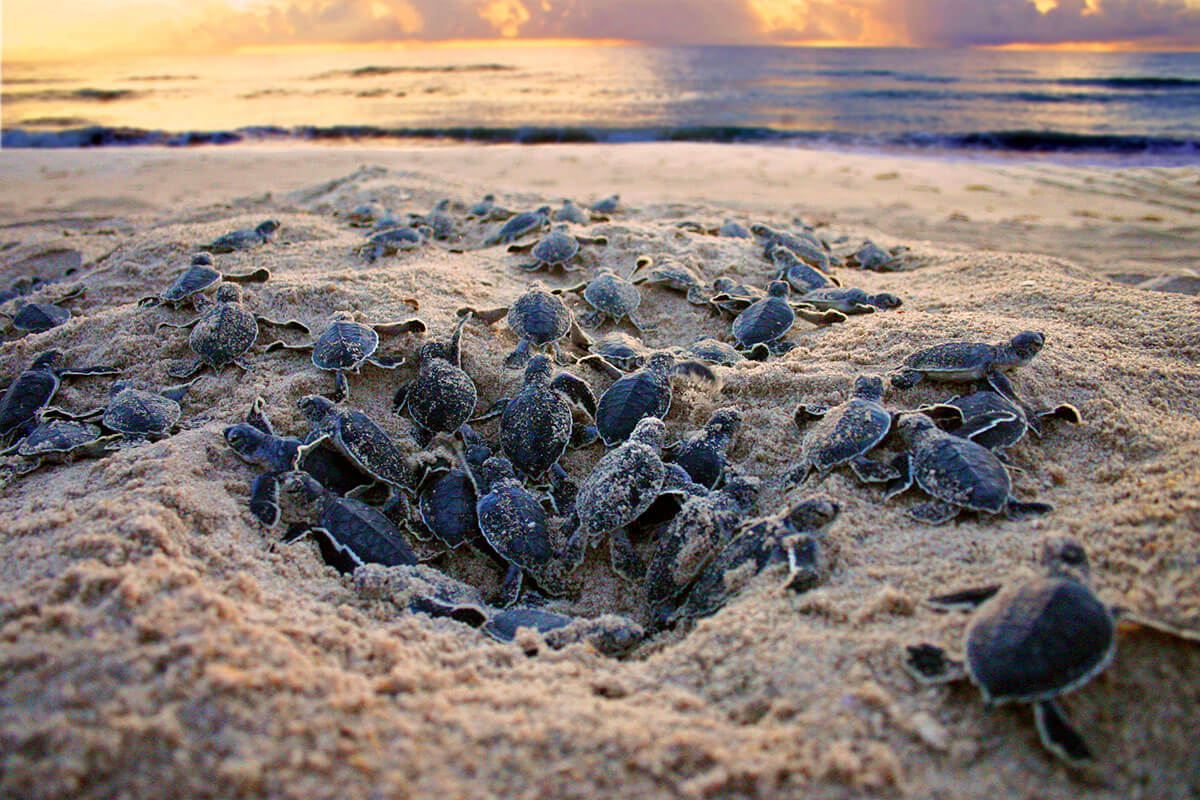Morjim Turtle Nesting Site Conservation
Project Statement
Morjim, a coastal village in the state of Goa, India,
is a crucial nesting site for Olive Ridley sea turtles, protected under The
Wildlife Protection Act (1976) and the Coastal Regulation Zone (CRZ)
notifications, 2019. Despite these legal safeguards, the nesting sites face
encroachment, challenges from conflicting interests, such as local villagers
and commercial activities. The prevalent issues include high intensity artificial
lights, loud music, extended operating hours of noisy beach shacks. The forest
department is challenged due to an unclear operational boundary. The turtles
that come on the beach for nesting need protection and the eggs need to be
moved to the nearby hatcheries for safe, successful incubation.
Moreover, non-compliance by tourists, weak beach shack
policies, facilitated by lack of enforcement from the Department of Tourism,
exacerbates the threat to the nesting habitat. Activities like Jet Ski
operations and unauthorized sand dredging vessels in the shoreline further
jeopardizes the fragile ecosystem.
Project Intervention
Vanashakti has undertaken vigilant monitoring of
Morjim beach to identify and report illegitimate activities that could
adversely impact Olive Ridley turtles' nesting habits. Instances of
unauthorized Jet Ski operations were promptly reported to the Captain of Ports,
leading to a decisive ban on all Jet Ski activities. Additionally, sand
dredging operations, posing a direct threat to nesting dunes, were addressed
through writing letters and Right to Information (RTI) filings to scrutinize
licensing permissions on a turtle-nesting beach. Shack owners were successfully
roped in to be part of the conservation measures thereby instilling a sens of
responsibility among them towards Turtle conservation.
To foster public awareness and cooperation, Vanashakti
has proposed a collaborative Morjim-Sea Turtle Festival with the Goa Forest
Department. The festival aims to conduct educational workshops for tourists and
citizens, highlighting Olive Ridley turtles, their nesting behaviours,
conservation efforts by the Forest Department, hatchling survival in the ocean,
and guidelines for responsible citizen behaviour.
Project Outcome
As a result of Vanashakti's efforts, the Captain of
Ports and the Goa Coastal Zone Management Authority have issued an
unconditional ban on Jet Ski operations, mitigating a significant threat to the
nesting sites.
The proposal for a Morjim-Sea Turtle Festival, in
collaboration with the Goa Forest Department, signifies a crucial step towards
raising awareness and fostering community engagement in turtle conservation.
The GPS-based biodiversity-mapping proposal holds
promise for targeted conservation efforts by identifying specific threats to
turtle habitats, informing policy decisions, and enhancing the overall efficacy
of the conservation initiatives led by the Goa Forest Department.

